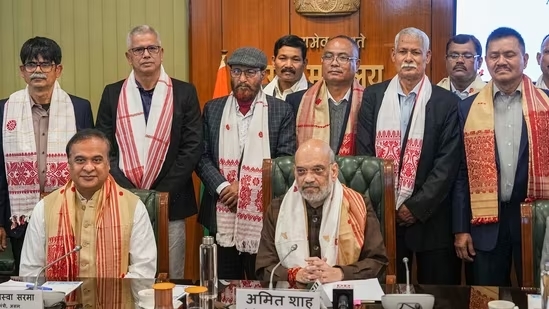Despite not being a party to the accord, the Paresh Baruah-led hardline wing of ULFA considers it a historic breakthrough in multiple aspects.
Above all, it represents the end of the 44-year military conflict that began with ULFA’s founding of a “sovereign” Assam in 1979. After starting in 2011, the talks between the Centre and the pro-talks ULFA side have finally yielded results, providing hope that the state beset by insurgency will be able to accelerate development initiatives with financial support from the Centre.

Source: Hindustan Times
At the same time, as the agreement pledges to resolve the problems of illegal immigration and land rights for indigenous tribes, a resolution to the socio-cultural conflict in Assam appears imminent. The hardcore ULFA organisation, whose commander Baruah is believed to be hiding somewhere along the China-Myanmar border, will still require the Centre to exercise caution.
Following several kidnappings, extortion cases, murders, and bomb explosions, ULFA was banned in 1990. At the same time, the harsh AFSPA was implemented, granting the military forces broad authority to prosecute lawbreakers in Assam.
Source: The Economic Times
Even though the Act has been repealed in a few regions of the state during the last two years, Chief Minister Himanta Biswa Sarma still needs to work on getting it removed from the remaining regions. Making sure that every citizen is a part of the mainstream is the first step toward achieving lasting peace and ending a protracted insurgency.
What do you think about this? Comment below.

